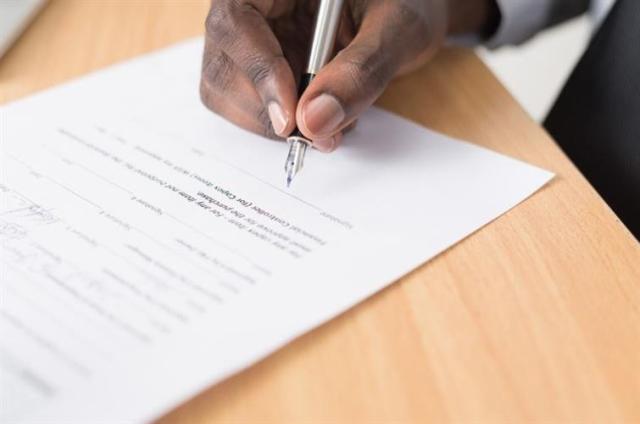Are you ready to sign that lease? Great! Your lease is a very important document (VID?) and as such, you’ll want to read it carefully. It’s a huge commitment, renting a new place. And your lease is a legally binding document. It isn’t exactly a fun or quick read, but you’ll want to take some time to read it carefully and make sure you fully understand all of it. (I know it isn’t easy to slow down during this exciting adventure, but you really should.)
Keeping that in mind, renting an apartment in a large community is very different than renting from a private landlord. The lease agreements in large apartment communities are fairly standard and legally compliant with the laws in your state (read it anyway). If you are renting from a private landlord, you’ll want to use a little more care. Hopefully, the landlord has used Apartments.com to generate the lease agreement. These are legally compliant with the laws in your state (read it anyway). Why do I keep telling you to read the lease? Because, once you sign it, you have agreed to all of the terms of the lease. All of them. You can't go back later and disagree with a clause. This is especially true if your landlord wrote the lease agreement -- they may not be aware of all of the landlord-tenant laws in your state and may accidentally include some suspect clauses. Here are some examples:
“The landlord rightfully has full and complete access into the tenant’s apartment at any time.”
It’s common for a lease agreement to include a “right of entry” clause. This clause allows a landlord or property manager to enter a tenant’s home when appropriately necessary – notice I said appropriately necessary.
Cases like emergencies, repairs or updates to the apartment, or if/when the landlord is showing the apartment to an investor or tenant that will be taking over the lease, are deemed appropriate by most governing bodies.
Aside from an emergency situation, landlords are typically required to give written notice before they enter your home. This is usually 24 hours, but it varies from state to state. Be sure to research your local laws to know how much notice your landlord should give you.
Anything else added or left out should send up an immediate red flag. If this happens, you may want to have your agreement reviewed by a third party.
“If tenant fails to pay rent on time, a 12% late fee will be added to the balance every day until the payment is fulfilled.”
Hold up, wait a minute…that’s a major red flag right there. Most states find 3-5% a reasonable late fee to charge tenants – though, some have gone as high as 10%. Read your late fee clause over carefully, and take note of its important details, like a fixed grace period to drop off rent or how a late fee will be applied – especially if you’re the (unintentionally) forgetful type.
“The tenant is responsible for all repairs to the apartment.”
By law, a house or apartment that a landlord rents out must be habitable. If the rental has issues that make it unlivable or unsafe, such as a broken water heater, the landlord is required to rectify the problem immediately. There’s a standard for health and safety that must be upheld – but note the difference between uninhabitable and inconvenienced.
The law doesn’t consider inconveniences, like re-grouting a shower because of mildew stains, a habitable offense.
“The tenant’s security deposit will go to maintaining the integrity of the apartment.”
This is vague and missing a lot of important details – What entails “integrity of the apartment?” If the home needs repair, what types are needed and how much will it cost? If no damage was done, how can I get my deposit back? Will I get my deposit back?
It’s important to review this clause to make sure you know exactly how your security deposit is being used. If it’s too vague, there’s a chance you may not get it back.
“The landlord has the right to change provisions at any time during the course of the lease.”
Big red flag here – a tenant may be at risk if a landlord is contractually allowed to make changes to provisions at any time during the lease. If you agreed on paper to a 4-day grace period and now your landlord is enacting a no grace period policy – that could be a problem.
Make sure the lease agreement has enforced restrictions on the landlord’s ability to change lease terms.
“The landlord cannot be held liable for any damages sustained to the apartment.”
A landlord must make sure the rental home is habitable for tenants. If the home is deemed uninhabitable, the landlord must make repairs -- unless you were the one who caused the damages in the first place. Then it is your responsibility to cover the costs of the repairs.
Please note: This post does not constitute legal advice, and should not be used as such. Visit HUD to learn more about tenant rights in your state. Photo by Cytonn Photography on Unsplash






